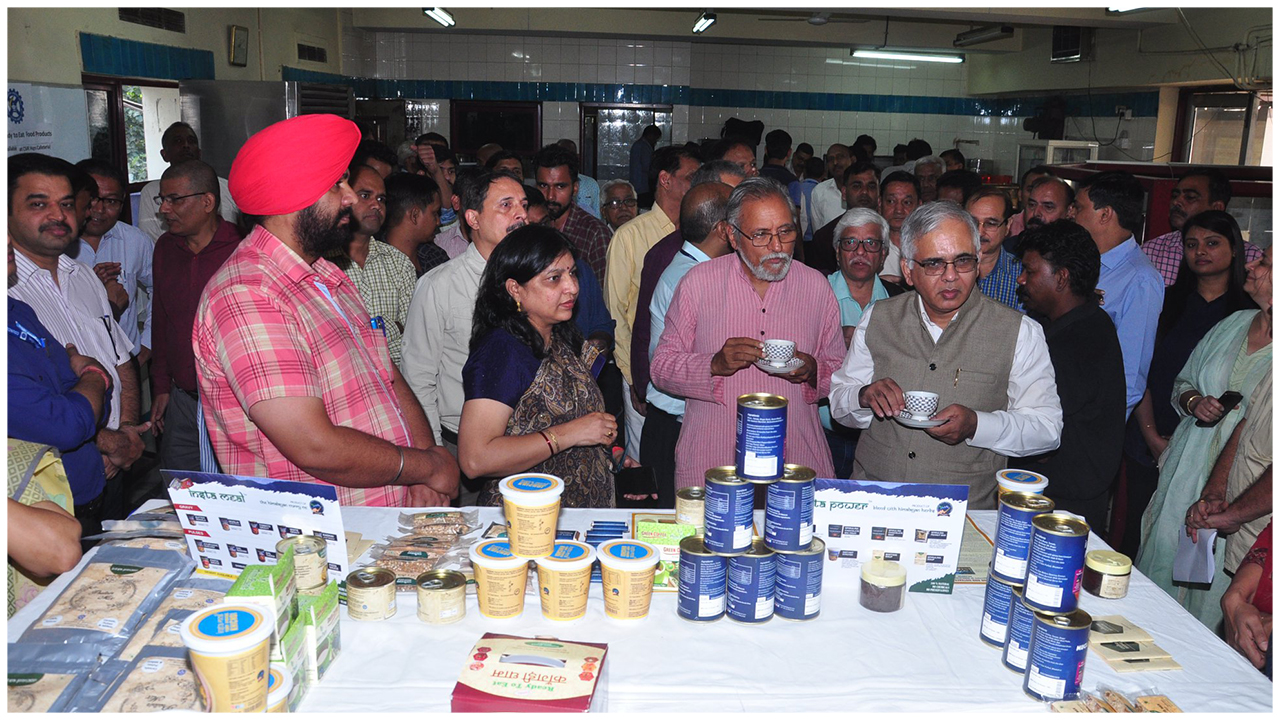With physical distancing being the key mantra for preventing the rapid spread of the SARS-CoV-2 virus in the population, lock down has emerged as the practical solution to slowdown of the epidemic in the country. Much as it is necessary, it is also proven to cause hardship to the vulnerable section of society like the migrants and the socio economically weaker population.
Apart from being known for its R&D and S&T knowledge base,CSIR has a track record of providing emergency interventionsin the past during major calamities in the country.Whether it was the Uttarkashi and Chennai Floods or during cyclone Fani, CSIR laboratories have pitched in with their expertise and resources to provide succour and support in the form of water purification technologies, hand pumps, cyclone shelters, structural rehabilitation, and ready-to-eat nutritious food.
Says DG-CSIR, Dr Shekhar Mande, “Even as CSIR put together plans to sequence the viral genome, develop drugs and diagnostic kits and explore vaccines against COVID-19, since CSIR has developed major interventions in food-related research and technologies, we decided to provide food assistance to the migrant labour and other needy persons in various places in the country. I am happy to note that CSIR labs across Indiaare coming to aid of the needy by providing food, sanitizers, masks etc in their respective regions and beyond.”
The country’s most prominent food technology research institute, the Mysuru-based CSIR-Central Food Technological Research Institute (CSIR-CFTRI), has over the years developed innumerable food and food processing technologies that have not only benefited farmers but also led to highly nutritious value-added food products. This time around, CSIR-CFTRI stepped in to provide 10 tonnes of high-protein biscuits, 1 tonne of spirulina chikki, 10 tonnes of cardamom-flavoured water, and 5 tonnes of nutrifruit bars to more than 56,000 migrant labourers, patients, doctors and police in two metropolises.The food items supplied by CSIR-CFTRI have longer shelf-life and so sustain for a longer time. They are also supplemented with micro-nutrients that boost immunity and help to fight against the SARS-CoV-2 virus.
For instance, fruit bars contain added Vitamin C and Zinc which are known to improve the immunity. Spirulina chikki, a snack,provides micronutrients from spirulina and micronutrients such as Vitamin A, Beta Carotene and easily digestible algal proteins.In the cardamom-favoured water, the spice extract (cardamom flavour) has been infused to make it a healthy alternative to commercially available beverages.
In fact, the CSIR-CFTRI also supplied 500 kg of high protein biscuits and 500 kg of high-protein rusks to the AIIMS-New Delhi for recuperating COVID-19 patients, on special request from the AIIMS.The biscuits are 60-80% richer in protein than usual biscuits.
“The nutritious products were chosen in such a way that they supplement the staple with either protein or minerals and vitamins that affect immunity positively, because the severe anxiety and uncertainty associated with lockdown and isolation need both these to be boosted,” says Dr. KSMS Raghavarao, Director, CSIR-CFTRI.
Mr Zakir Thomas, Principal Income Tax Commissioner, who undertook relief work on behalf of the Income Tax Office for migrant workers in Benguluru city “CSIR-CFTRI have been an awesome partner in this endeavour. Without any bureaucratic hindrances we could immediately distribute protein-enriched biscuits and spirulina chikkis among the migrant labour. It was heart-warming to see children relishing the products. I think this is also a fine example of taking science to the people.”
In the North meanwhile, on being informed by a Panchayat representative that several families of migrant labour who were stuck due to the lockdown were struggling to find food, Palmpur-based CSIR-Institute of Himalayan Bioresource Technology (CSIR-IHBT), another Institute well-known for its food processing technologies, put its act together and supplied 5000 boxes containing 60 tons of Dal Chawal Aloo Mix, 2.16 tons of ready-to-eat local (Kangra) cuisine, 1500 Spirulina Peanut Bars, 1000 Multigrain Energy Bars, and 1500 Multigrain Protein Powder not only for the migrant labour but also for frontline workers like doctors, paramedical staff, health workers and policemen. The food is free of chemicalsand preservatives, has probiotic effects and its shelf-life is 12 months.
CSIR-IIP, in Dehradun has also been providing food for the past one month to nearly 300 persons every day.
CSIR-Institute of Minerals & Materials Technology (CSIR-IMMT) in Bhubaneswar also delivered 30 Kof ready-to-eat food (Khichidi) along with hand snitizer, and soap provided by CSIR-IHBT to the Commissionerate Police, Bhubaneswar.The staff of CSIR-Central Institute of Mining and Fuel Research (CSIR-CIMFR) posted at the Donimalai Iron Ire Mine in Karnataka also put in their bit by distributing food packets containing essential rations for the needy.
In addition, to providing food assistance, CSIR is also planning to support the creation of Rural/Social Enterprises through rural entrepreneurship with support from Industry. This would provide opportunities to those who are increasingly migrating to rural and semi-rural areas during the outbreak. This would involve training on synthesis and manufacture of disinfectants, sanitizers, soaps, masks, gloves, food products, water purification kits, etc. through social and voluntary organizations.

 Apart from being known for its R&D and S&T knowledge base CSIR has a track record of providing emergency interventions
Apart from being known for its R&D and S&T knowledge base CSIR has a track record of providing emergency interventions



































